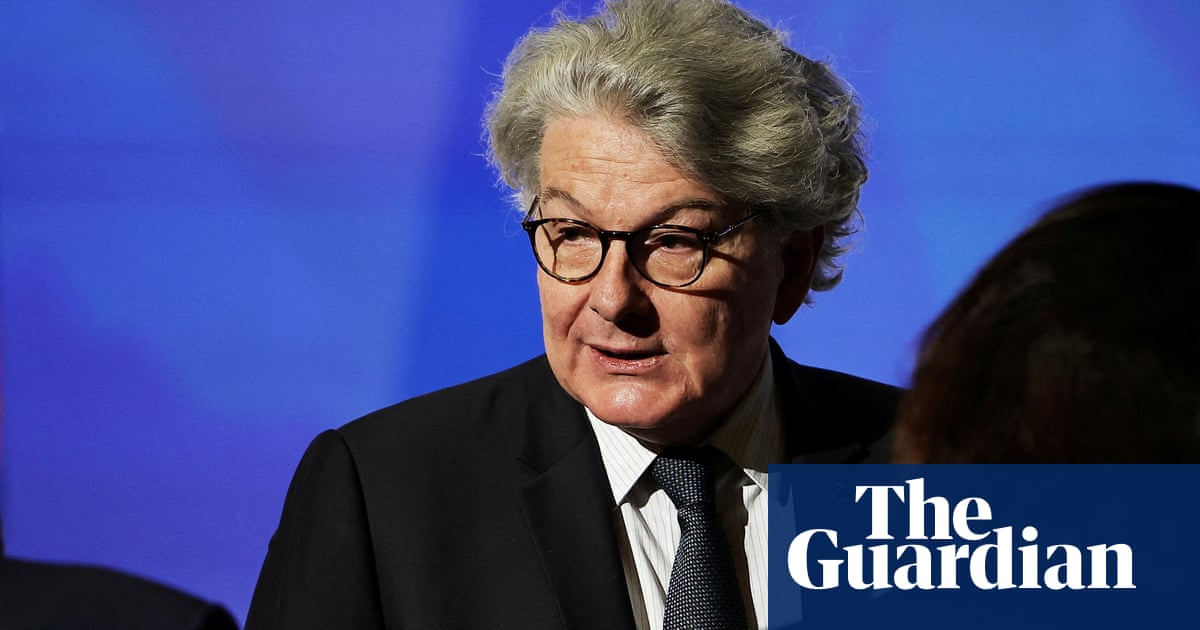World
France’s European commissioner resigns amid row with von der Leyen

France’s European commissioner, Thierry Breton, has resigned, citing “questionable governance” at the EU executive led by Ursula von der Leyen.
Breton, who was in charge of the EU’s single market and industrial policy, announced his immediate resignation in a post on X on Monday morning.
The French president, Emmanuel Macron, had appointed Breton to serve a second term as EU commissioner in June. But Breton said in his resignation letter that von der Leyen had asked Paris to withdraw his name “for personal reasons that in no instance you [von der Leyen] have discussed directly with me”.
“In light of these recent developments – further testimony to questionable governance – I have to conclude that I can no longer exercise my duties,” he added.
Breton announced his resignation with a touch of theatricality, by posting on X an empty frame hanging on a wall. “Breaking news: my official portrait for the next European Commission term,” he wrote, with his resignation letter following in a separate post.
The announcement adds to the disarray over the appointment of von der Leyen’s top team, which is already running late. In seeking a more gender-balanced lineup, von der Leyen inadvertently triggered a political row in Slovenia after putting pressure on the government to withdraw a male candidate.
She is expected to reveal details of the next commission, which has a five-year term, after meetings with senior MEPs on Tuesday. Her team consists of 27 EU commissioners, one from each member state, who will collectively be responsible for enforcing EU law spanning a swathe of areas including environment and climate, industrial and economic policy, foreign affairs, migration, farming and fishing.
Breton was one of von der Leyen’s most high-profile commissioners, who sparred with US technology companies such as X and Meta over regulations to curb the harmful effects of the internet, and oversaw moves to increase EU production of ammunition in light of the war in Ukraine.
Linda Yaccarino, X’s chief executive, reacted gleefully to news of his resignation. “It’s a good day for free speech,” she wrote on the social media platform.
Hours after the news broke, France’s foreign minister, Stéphane Séjourné, was announced as his country’s commissioner nominee. A close ally of Macron who served as the leader of the centrist group in the European parliament, Séjourné has been put forward by Paris for a job involving EU industrial and competitiveness policy.
The commission has yet to name the person who will take over Breton’s portfolio for the final weeks of the outgoing commission, in a sign his departure has blindsided von der Leyen.
EU officials had expected Breton to serve a second mandate, taking on a weighty portfolio as an executive vice-president and one of the most senior members of von der Leyen’s team. His dramatic resignation comes soon after a politically weakened Macron announced the centre-right Michel Barnier as prime minister in an attempt to quell France’s political crisis following snap elections that resulted in a hung parliament.
Against a backdrop of political tumult at home, Macron’s star has waned in the EU, but France remains influential in setting the EU agenda of a more “sovereign Europe”, meaning less dependence on the rest of the world for security, vital resources and industrial goods.
After Breton’s announcement, one EU diplomat observed that he “wasn’t as well liked in Paris as he thought he was”.
A spokesperson for the European Commission declined to comment on the charges of “questionable governance” under von der Leyen. “The president takes note and accepts Thierry Breton’s resignation and thanks him for his work as commissioner throughout the mandate,” the spokesperson said, citing Breton’s work on EU laws, notably the Digital Services Act, the Digital Markets Act and “other important digital and industrial files”.
Von der Leyen had received the resignation letter on Monday morning, the spokesperson said, but they could not say whether the commission president had been informed of Breton’s decision to go before he posted on X.
Von der Leyen “hopes to be in a position” to announce the details of her new commission on Tuesday, the spokesperson said, adding that “24 hours in politics are a long time”.
A statement from the Élysée Palace described Breton as a “remarkable European commissioner” who had “significantly contributed to advancing a policy of European sovereignty” in digital policy, industry and technology and resilience of the European single market during the Covid crisis.
“The president of the republic has always defended obtaining for France a key portfolio of European commissioner, focused on the issues of industrial, technological sovereignty and European competitiveness,” the statement said.
The veteran German Social Democrat MEP Bernd Lange said the nomination of the new commission was “slowly degenerating into absurd theatre” and was “not a good omen for the future”.
Rym Momtaz, the editor-in-chief of the Carnegie Europe thinktank’s Strategic Europe publication, wrote: “There’s never been any love lost between von der Leyen and Breton, but this EU commission composition is like a Succession/Game of Thrones mashup.”
Breton, a former business executive, was not afraid to criticise his boss. He joined other senior colleagues last year in criticising von der Leyen’s decision to appoint a fellow German member of the Christian Democratic Union party to a senior role he was said to be less qualified for than others.
When von der Leyen was running for re-election this year, Breton questioned whether she should get a second term. “Is it possible to (re)entrust the management of Europe to the EPP for five more years?” he wrote on X after the centre-right European People’s party alliance gave von der Leyen an underwhelming majority when selecting her as their candidate. “The EPP itself does not seem to believe in its candidate,” he wrote.
Von der Leyen, who was reappointed by EU leaders and re-elected by the European parliament to serve a second term, has long faced accusations that she is aloof, lacks transparency and fails to involve senior colleagues in EU decision-making.
Supporters point to her record of support for Ukraine and creation of a post-Covid recovery fund, but Breton’s letter is likely to add to criticism about her working methods.
Brando Benifei, an Italian Democratic party MEP who worked with Breton in drawing up the EU’s AI Act, wrote on X: “I didn’t agree on all the actions and plans of Commissioner Breton, but his dedication to pursue more European pooled sovereignty and his efforts for a healthier digital environment were to be supported.”
Tomasz Froelich, a German MEP with the far-right Alternative für Deutschland party, described Breton as “one of the greatest threats to freedom of expression in Europe, who recently wanted to cancel Twitter and Elon Musk”, and said his departure was a “good thing”.










